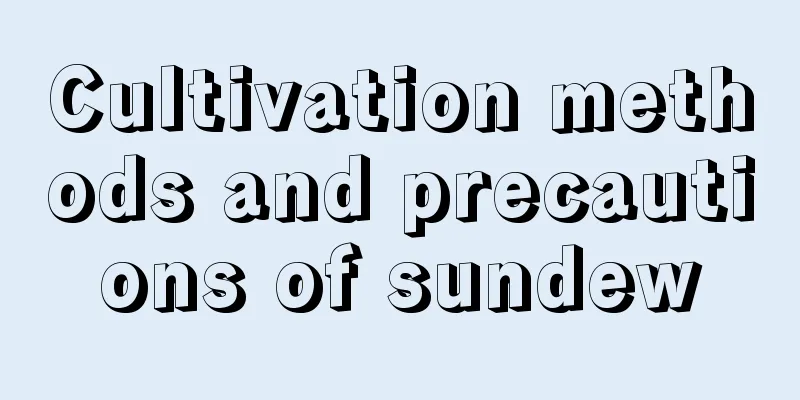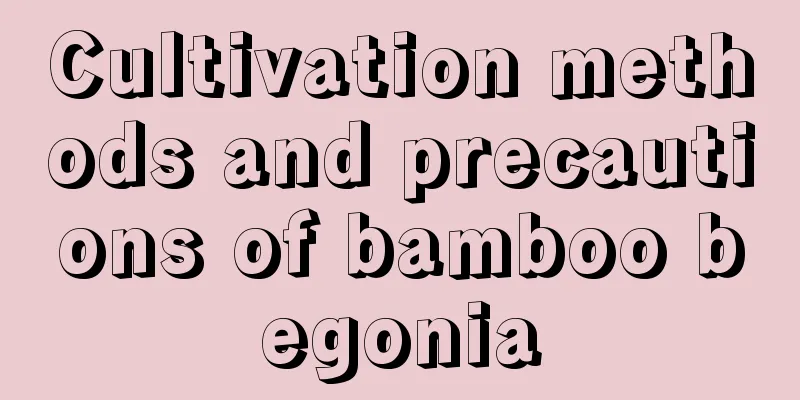Cultivation methods and precautions of sundew

How to grow sundewsoilSundew has low requirements for soil. You can use a mixture of peat soil, perlite and river sand, or you can use sphagnum moss or pure peat soil. Light and temperatureSundew likes sunlight, and sufficient light is conducive to the bright color of sundew. When caring for sundew, it is necessary to maintain a long period of light every day, and it can be placed on the balcony or windowsill. If there is no way to have direct access to direct light, bright diffuse light can also be provided. Please note that when the light is strong in summer, shade is needed to avoid burns. Sundew does not like an environment that is too cold or too hot. The suitable temperature for its growth is between 15℃-25℃. It needs to be kept warm in winter, and the minimum temperature needs to be kept above 0℃. It should be kept indoors if necessary. In summer, it will go dormant if the temperature is too high. Watering and fertilizingSundew can tolerate moisture, but does not require high air humidity. However, the humidity should not be too high in summer to avoid rotting of stems and leaves. When watering, you need to keep the soil moist. Generally, you can use the "waist water" method to supply water, and soft water is best. When applying fertilizer, it should be applied thinly and frequently. During the growing season, apply thin liquid fertilizer once or twice a month. Pay attention to the concentration to avoid fertilizer damage. Things to note when growing sundewReproduction methodTo propagate Drosera, you can use cuttings, usually leaf cuttings, or remove the small bulbils on the plant and plant them in time. You can also use sowing propagation, which is also relatively simple. Pests and diseasesDuring its growth process, sundew will encounter some pests in spring and summer, such as aphids, caterpillars and cutworms. These pests may eat the leaves of sundew. Once found, they need to be captured and killed in time, and pesticides can be used if necessary. |
<<: Cultivation methods and precautions of Gaillardia
>>: The cultivation methods and precautions of Kaempferia galanga
Recommend
Can tap water be used to water flowers?
Can tap water be used to water flowers? It is bes...
Pomegranate grafting time
1. Grafting time Time is an important factor in s...
Cultivation methods and precautions of red gentian
1. Maintenance methods 1. Temperature: Red Gentia...
How to propagate green jade tree
1. Time Selection Green jade tree is generally pr...
How to propagate the vine of love (rooting in water, cuttings in soil)
1. Cutting method This is a more common method. F...
How to grow hydroponic vegetables?
Hydroponic vegetables can be grown as flowers to ...
How to plant golden lotus seeds
one. Seed processing steps before planting: 1 Bec...
What vegetables will be expensive in 2022 (what vegetables will have the best prospects for planting next year)
What vegetables can I grow to get good prices and...
What to do if the color of succulents turns dark in winter
Different types of meat may darken, which is a si...
Can I grow a wolfberry tree at home?
Can I grow a wolfberry tree at home? You can plan...
What are the cultivation methods and precautions for lily bamboo?
Lily Bamboo Introduction Lily bamboo is a plant o...
How to grow money trees and banyan trees, what are the differences?
1. Breeding methods 1. Light: Both are light-lovi...
How to care for the lucky charm in winter
Is the lucky flower afraid of cold? The lucky bam...
The meaning of asparagus fern
Origin of the name and its meaning Origin of the ...
Cultivation method of Dendrobium officinale
1. Maintenance methods 1. Temperature: between 20...









